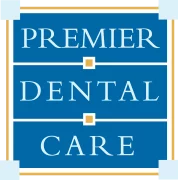
Grinding your teeth, or Bruxism, can lead to increased wear on your teeth and, if bad enough, can result in the need for restorative care if wear results in chipped teeth or a misaligned bite. There are several techniques that you and your dentist can do to stop grinding.
What You Can Do
There are exercises that can relax jaw muscles and keep your jaw from clenching. Opening your mouth wide while touching your tongue to your front teeth is one method, while holding your tongue to the roof of your mouth as if pronouncing “N” can be another. You can also massage your jaw, particularly up where the jawbone meets the rest of your skull. This massage can also help alleviate some of the pain associated with bruxism.
Grinding can happen for multiple reasons, too. If you think stress may be related to your teeth grinding, dedicate time to unwinding. You can meditate, stretch your whole body or whatever puts your mind at ease, particularly through physical activity.
Teeth grinding can also happen when you are unaware, either when you are asleep or subconsciously when you are awake. If you feel jaw pain or see small vertical scratches on your front teeth, you may be grinding them & not even realizing it. Connecting these symptoms with your teeth grinding can help you find the root of your issue & how best to address it. For more serious cases, it may be time to see the dentist.
What Your Dentist Can Do
Your dentist has several things that can help keep your teeth from grinding. A custom-fit mouthguard is one of the more popular solutions. Unlike a boil-&-bite (but let it cool first!) mouthguard, custom mouthguards are made by your dentist using models of your teeth from the start, which can provide added lifespan & a better fit.
Your dentist may have to perform additive or reductive work to your teeth to fix your bite if the grinding has gone on too long. In these cases, the dentist will add to your teeth with special material similar to a veneer or reduce and even teeth out where they have become too uneven. Obviously, this is a less preferable option, so it’s best to see your dentist soon if you feel your bruxism cannot be controlled with household methods.
